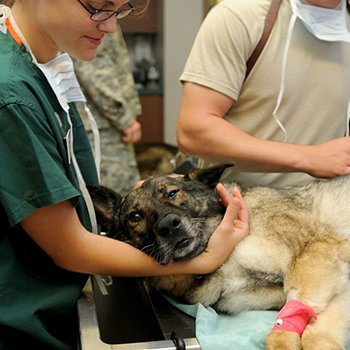Benefits Of Spaying Neutering Pets
Social Benefits
Spaying a female cat or dog eliminates the heat cycle and the female’s attempt to find a mate will stop. Males will no longer be drawn to the scent of a female in heat and will eliminate unwanted “suitors” at your door.
Neutering a male eliminates the desire to find a mate which in turn stops males from roaming and fighting to get a mate. This reduces the risk of traffic deaths, fighting injuries, and communicable disease spread by such activities. Male cats generally loose the desire to urine mark their territory and male dogs loose the sexual frustration which causes them to mount people and objects.
Medical Benefits
Almost half of intact female dogs will develop breast tumors, but virtually no tumors occur if the pet is spayed before the first heat cycle. Spaying also eliminates the development of uterine or ovarian cancers. Neutered dogs are less likely to develop prostate problems and testicular tumors. On average, spayed and neutered pets will live longer.
Psychological Benefits
Altering your pet removes the discomfort, distress, and distraction from the sexual drive and makes the pet a more content family member. Of reported dog bites, 80% are done by intact animals.
Benefits for the Pet Owner?
Spaying and neutering your pet can save you money. Altering a pet is a one time expense and our program offers affordable options to fit any income level.
Unaltered pets suffer more from health issues such as certain cancers. Also, fighting or roaming (traffic) injuries are more common. Problem pregnancies can require emergency surgery to save the female pet and/or the litter. A female pet that doesn’t produce milk or dies from complications requires a human to bottle raise the babies. This adds extra expense and a great time commitment to be successful. House training, feeding, treating for illness, and vaccinations all add to your expenses with each new litter that is born.
Finding homes for all your litters can be challenging. Advertising your unwanted pets as “free to a good home” often doesn’t find a good home and these pets are sometimes taken for purposes other than pets (dog training, snake food, etc.) Even if you manage to find a good home for every puppy or kitten, each one takes away a potential home of a homeless pet waiting in a shelter.
Finally, for those special people who just love having puppies or kittens around, offer to foster a litter from a local rescue group. Foster homes are always in demand and you can enjoy raising the little ones without intentionally adding to the population problem. Once the babies are old enough to be adopted, they go back to the rescue group and you can foster more babies. In a foster program, everyone wins!

